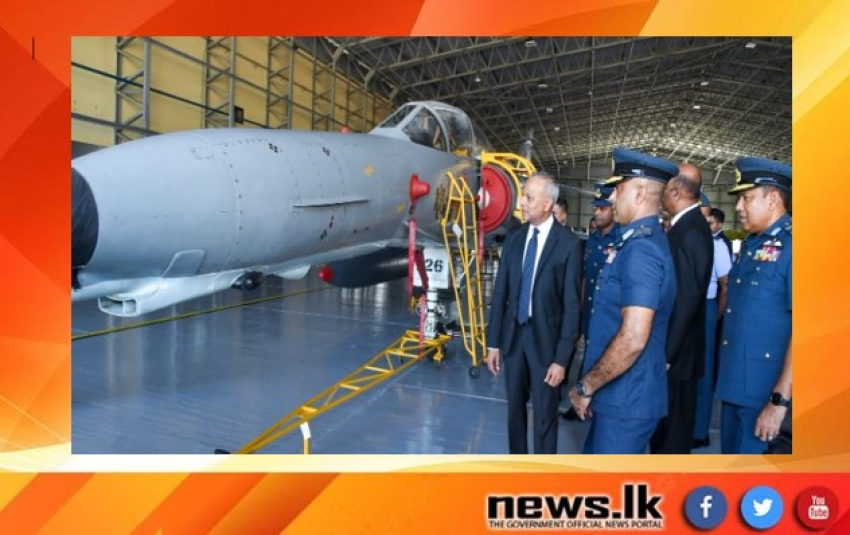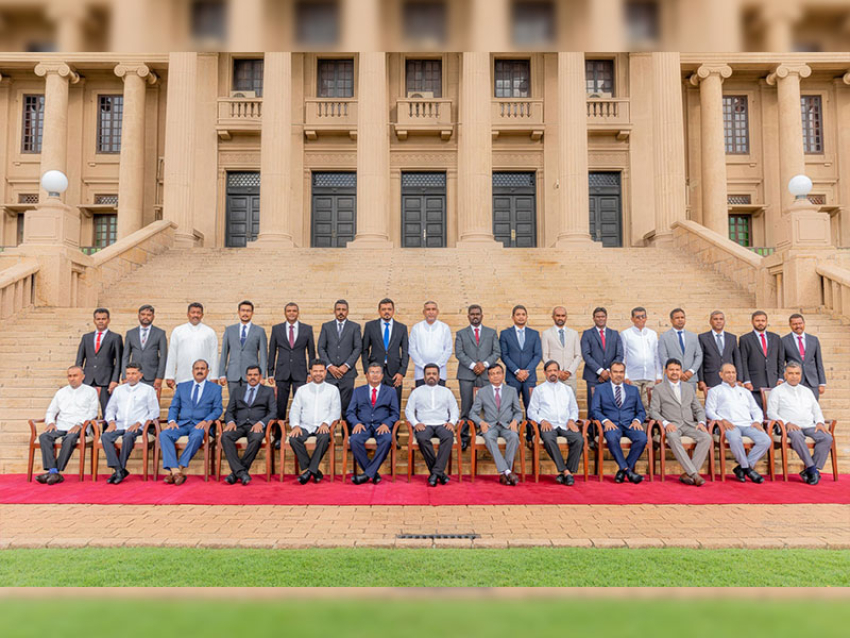A successor Donier-228 maritime surveillance aircraft was handed over to Sri Lanka by India at a ceremony held at the Sri Lanka Air Force Base in Katunayake.
During the bilateral security discussions that transpired between India and Sri Lanka on January 9, 2018, in New Delhi, the potential acquisition of maritime surveillance aircraft akin to the Dornier type from India was brought to attention. The aim was to bolster Sri Lanka's capabilities in maritime surveillance.
In response to Sri Lanka's request, the Indian government took proactive measures during these deliberations. They decided to provide a Donier-228 maritime surveillance aircraft, which was part of the Indian Navy's fleet, to Sri Lanka free of cost for a span of two years. The formal handover of this aircraft took place at the Sri Lanka Air Force Base Katunayake, with Mr. Baglay officiating.
Upon its delivery, the Donier-228 aircraft was instrumental in performing specialized tasks within Sri Lanka over the past year. Subsequently, it underwent mandatory annual maintenance services in India. In lieu of the aircraft undergoing maintenance, a replacement Donier-228 maritime surveillance aircraft was assigned to the Sri Lanka Air Force at a ceremony held August (16) in Katunanayake.
Since its initial arrival in Sri Lanka, the Donier-228 maritime surveillance aircraft has significantly contributed to numerous operations. These encompass a spectrum of activities such as monitoring and safeguarding Sri Lanka's airspace and exclusive economic zone through maritime and coastal surveillance operations, executing search and rescue missions, and monitoring and controlling maritime pollution.
The official handover of the successor aircraft to Sri Lanka was attended by a delegation representing the Sri Lankan Government. This delegation included Senior Advisor to the President on National Security and Presidential Chief of Staff Mr Sagala Ratnayaka, HE Gopal Baglay, the High Commissioner of India to Sri Lanka, General Kamal Gunaratne (Rtd) Secretary to the Ministry of Defence and other officials.
Following is the speech delivered by Mr Sagala Ratnayaka during this event;
It was just one year ago that we were here at a similar ceremony when the President accepted the first of the Dornier aircraft into the Sri Lanka Air Force fleet. Our friends, our neighbouring friends, were gracious enough to assist us. It is not only with this aircraft that we have received India's assistance. It's been a longstanding relationship, but in more recent times, when we were going through the economic crisis, India stepped up beyond the call of duty to lend us a hand.
We were having difficulty in providing the basics to our people, leaving alone our responsibilities in the region, such as the maritime reconnaissance or the maritime domain awareness work that is expected of Sri Lanka, considering its location in this important location in the Indian Ocean. I remember when President Wickremesinghe was here at that function, he made very special mention of this. And we, in our recent visit to India, have developed a closer bond and a vision for how we will work together in the future as well.
Connectivity is the key word. It's a big word, actually. It has a wide area of meaning. It can be road connectivity, it can be people to people connectivity, economic connectivity, logistical connectivity, security connectivity, you know, it's a large sphere. And we as neighbours cannot change the fact that we are neighbours. We will have to work together to ensure the safety of each other.
We will have to also make mention that at difficult times the American Government and the government of Australia also stepped up in the area of maritime security to assist the Sri Lanka Air Force and the Sri Lanka Navy with much needed fuel. It sounds very primitive when I talk of fuel but that is the time we went through. Much needed fuel, and not stopping at that have also pledged further assistance to help us expand our fleet. Our fleet suffered during the economic crisis. It wasn't only the people, but many other things suffered, and along with that came the difficulties of fleeting the Sri Lanka Air Force. Our aircraft were in want of overhaul. We had to re-fleet to keep up with technology and the modern requirements. And this entire program has suffered. So again, I must say we are very grateful to India for supporting us through this. You were the first to step up and as always, we are very grateful to you for that.
There was in the previous speeches the value of maritime reconnaissance and our responsibility in the maritime domain. It is actually a little beyond that. Okay, in one way you have to ensure the security. And security means preventing drug smuggling, preventing the transport of or smuggling of weapons, and people smuggling or even pirating. But it doesn't stop at that. It also goes into humanitarian assistance and disaster relief. All of these are required of us as a country that is located in a prime location as we are in this Indian Ocean. But we have to think beyond. Now, when the Sri Lanka Air Force started, these were not our threats. The threats have evolved over the time. Then came the war. During the war it was a different role that we played. Our role is different now and it keeps changing. And within the role, the demands will only keep increasing because everybody's technology will keep improving.
It is important that we as a country strategize our requirements for the future, the three forces, the defence requirements of the three forces of Sri Lanka. We need to start thinking of that. We need to start thinking of how we modernize our armies, what our strategies would be and we will be starting on that work or we have started on that work as we speak. His Excellency the President will announce the way forward on Friday when he speaks at the naval pass out in Boossa.
But we have to think beyond we were speaking on the tarmac, that deforestation is happening rapidly. Sand mining is happening. All of this takes away from the future of our country. So we need to work together to safeguard our environment. We can be in this prime location, we can have the best potential for solar energy, we can have the best potential for wind energy, we can be a strong force in the climate economy. But if our environment is going to keep deteriorating due to the bad deeds of our own people, then we need to make more steps towards stopping that.
So the Air Force, the Navy, the Army, along with the other agencies that are tasked with these will have to work together, coordinate together to ensure that we safeguard the environment for the future of our country and for the future generations. I know His Excellency the High Commissioner has a meeting today with our Foreign Minister very shortly, so I don't want to keep speaking very much longer. I just want to say thank you again and thank you very much to the Sri Lanka Air Force for the efforts you have taken since the war to safeguard this country.





















